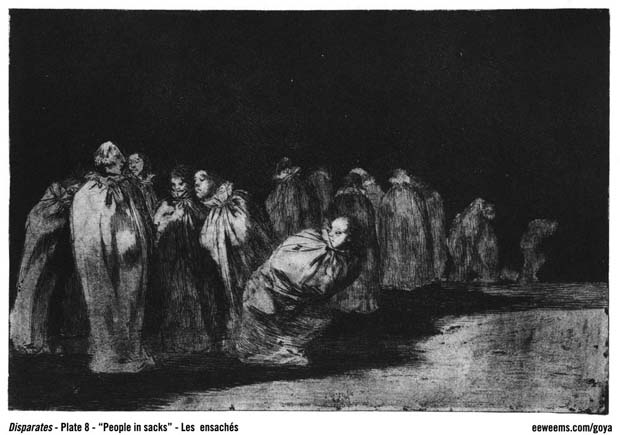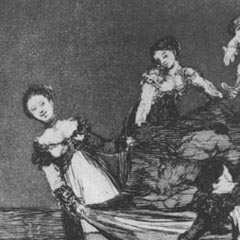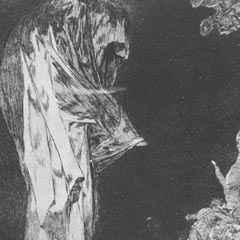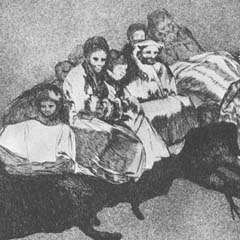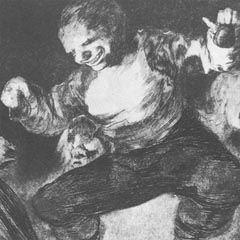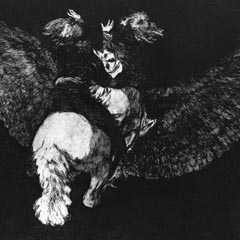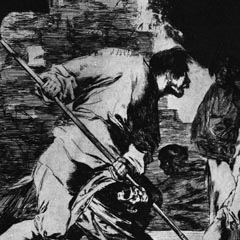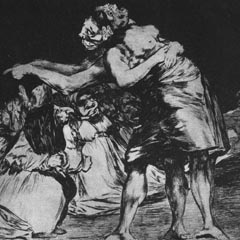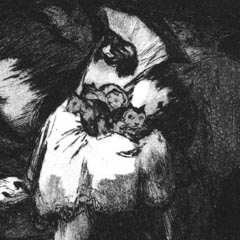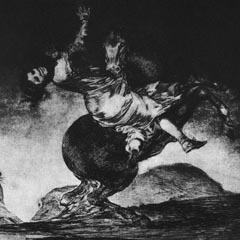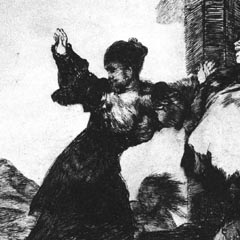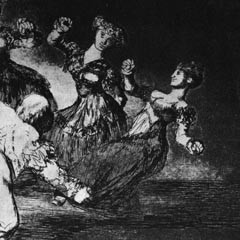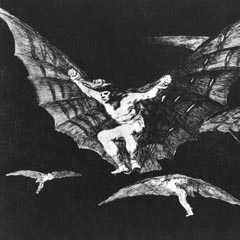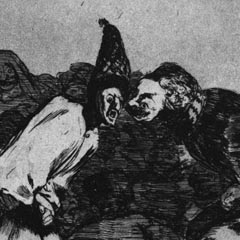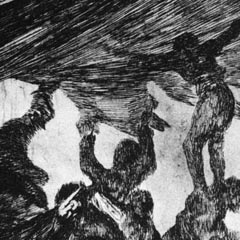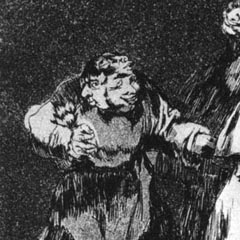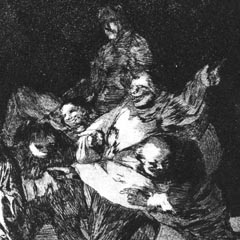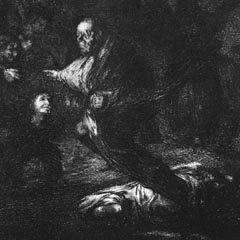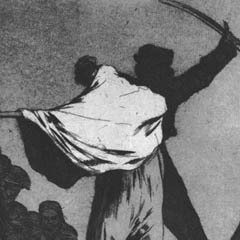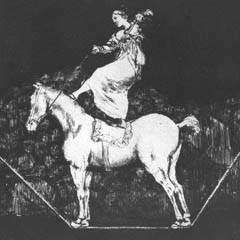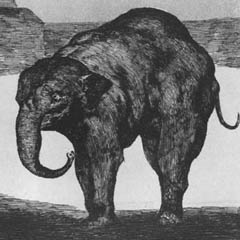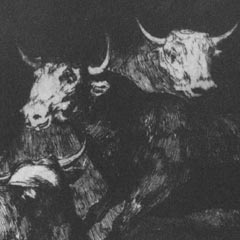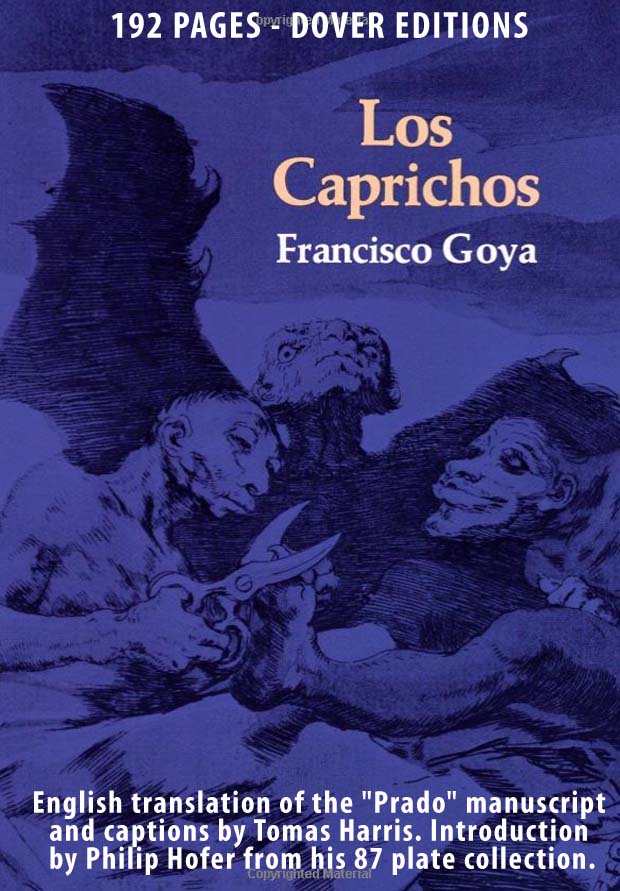Goya | Les ensachés
Disparates
Plate 8
People in Sacks
Les Ensachés
The title "people in sacks" comes from Loys Delteil, the editor of the French L’Estampe Moderne and the writer of several books on French artists from the late 1800s - early 1900s. There is not a known Spanish title from Goya for this image.
Available collections:
Goya y Dali: del Capricho Al Disparate (Spanish Edition) - Amazon
Goya Caprichos and Desastres (Spanish) - Amazon
The Disparates
Plate 7
Matrimonial Extravagance
Plate 10
Young woman on a bucking horse
Plate 12
Three men and women dancing
Plate 18
Old Man Wandering Among Phantoms
AMAZON
Goya The Terrible Sublime - Graphic Novel - (Spanish Edition) - Amazon
"From this headlong seizure of life we should not expect a calm and refined art, nor a reflective one. Yet Goya was more than a Nietzschean egoist riding roughshod over the world to assert his supermanhood. He was receptive to all shades of feeling, and it was his extreme sensitivity as well as his muscular temerity that actuated his assaults on the outrageous society of Spain." From Thomas Craven's essay on Goya from MEN OF ART (1931).
"...Loneliness has its limits, for Goya was not a prophet but a painter. If he had not been a painter his attitude to life would have found expression only in preaching or suicide." From Andre Malroux's essay in SATURN: AN ESSAY ON GOYA (1957).
"Goya is always a great artist, often a frightening one...light and shade play upon atrocious horrors." From Charles Baudelaire's essay on Goya from CURIOSITES ESTRANGERS (1842).
"[An] extraordinary mingling of hatred and compassion, despair and sardonic humour, realism and fantasy." From the foreword by Aldous Huxley to THE COMPLETE ETCHINGS OF GOYA (1962).
"His analysis in paint, chalk and ink of mass disaster and human frailty pointed to someone obsessed with the chaos of existence..." From the book on Goya by Sarah Symmons (1998).
"I cannot forgive you for admiring Goya...I find nothing in the least pleasing about his paintings or his etchings..." From a letter to (spanish) Duchess Colonna from the French writer Prosper Merimee (1869).
GOYA : Los Caprichos - Dover Edition - Amazon

